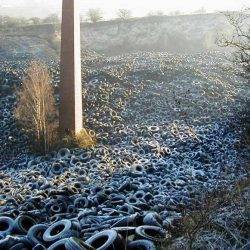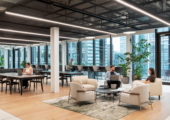February 17, 2019
Century Office begins experiment into six hour working day
![]() Century Office will soon be commencing an experiment into a shorter working day. In collaboration with the University of Essex, Century Office will be shortening the working day down to 6.5 hours. They expect that, although it remains to be proven, that employees will become more focussed and productive as the desire for more leisure times and time for self-care, family, hobbies etc outweighs the tendency for idle chat and periods of low productivity. It is also hoped that participants will feel less anxious or tired as they have more time to pursue personal endeavours and come out of work mode.
Century Office will soon be commencing an experiment into a shorter working day. In collaboration with the University of Essex, Century Office will be shortening the working day down to 6.5 hours. They expect that, although it remains to be proven, that employees will become more focussed and productive as the desire for more leisure times and time for self-care, family, hobbies etc outweighs the tendency for idle chat and periods of low productivity. It is also hoped that participants will feel less anxious or tired as they have more time to pursue personal endeavours and come out of work mode.








 A lack of senior stakeholder support is the greatest inhibitor of change, new research suggests as despite considerable enthusiasm to innovate, organisations are being thwarted by tight resources and strong internal resistance. The data commissioned by KCOM found that organisations are also limiting themselves by turning away the specialist skills and experience that could help them advance, through overly predictive procurement processes. They are however, eager to be more competitive, which is why organisations are making big investments in innovation projects. Almost half (43 percent) consider driving digital transformation to improve competitive advantage to be their top priority in the next year. A further 32 percent are allocating at least 20 percent of their IT budget to new projects. Both public and private sector organisations are also taking an increasingly people-centric approach to digital transformation. In the next year, 80 percent said they would incentivise staff retention through training, accreditation and career development to deliver on their innovation strategy. This is compared to 71 percent who said they would do so by investing in new technologies.
A lack of senior stakeholder support is the greatest inhibitor of change, new research suggests as despite considerable enthusiasm to innovate, organisations are being thwarted by tight resources and strong internal resistance. The data commissioned by KCOM found that organisations are also limiting themselves by turning away the specialist skills and experience that could help them advance, through overly predictive procurement processes. They are however, eager to be more competitive, which is why organisations are making big investments in innovation projects. Almost half (43 percent) consider driving digital transformation to improve competitive advantage to be their top priority in the next year. A further 32 percent are allocating at least 20 percent of their IT budget to new projects. Both public and private sector organisations are also taking an increasingly people-centric approach to digital transformation. In the next year, 80 percent said they would incentivise staff retention through training, accreditation and career development to deliver on their innovation strategy. This is compared to 71 percent who said they would do so by investing in new technologies.
























February 20, 2019
It is time for organisations to embrace the digital workplace
by Christian Brøndum • AI, Comment, Facilities management, Flexible working, Technology, Workplace
(more…)